Monthly Journal
July 2024
International Press Review
The most relevant events of the area through international sources
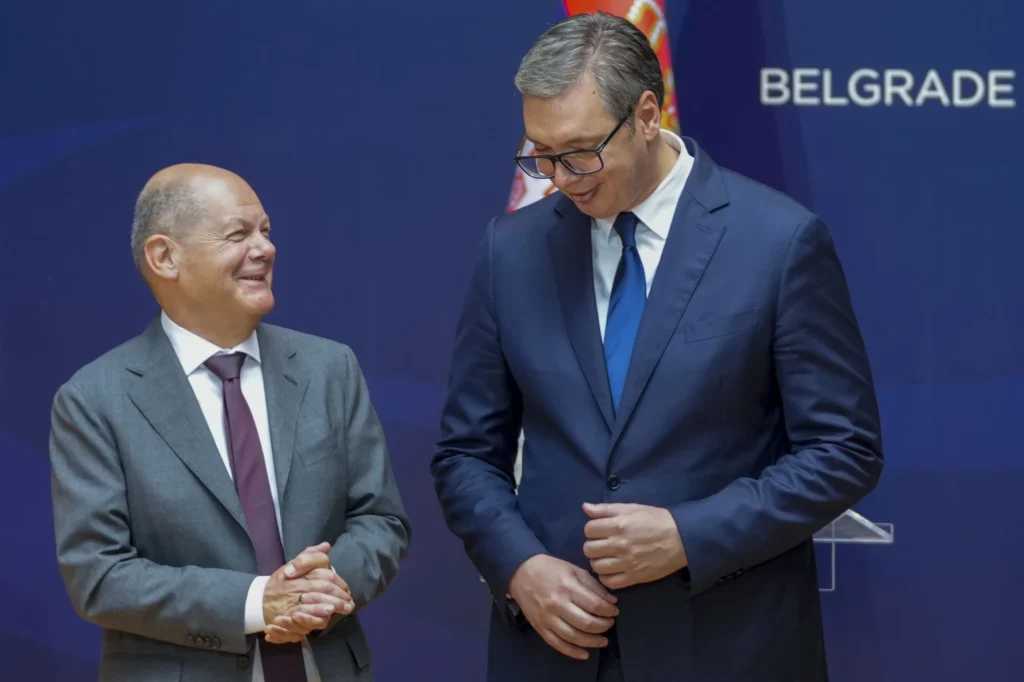
Germany praises new lithium deal with Belgrade
The Associated Press
During an official visit to Belgrade, German Chancellor Olaf Scholz praised a deal between Serbia and the EU signed in July, that addresses the contentious excavation of lithium in the Balkan country giving the EU access to important raw materials mined in Serbia. This deal, part of a strategic partnership on sustainable raw materials, battery supply chains, and electric vehicles, aims at reducing Europe’s reliance on China. Scholz called the project “important” for Europe’s sovereignty and emphasised the need to discover new raw material sources. Germany, a major carmaker, is focusing on securing lithium for electric vehicle batteries. Meanwhile, Serbia’s government has reinstated a spatial plan for a major lithium mining and processing project (the so-called Jadar Project).
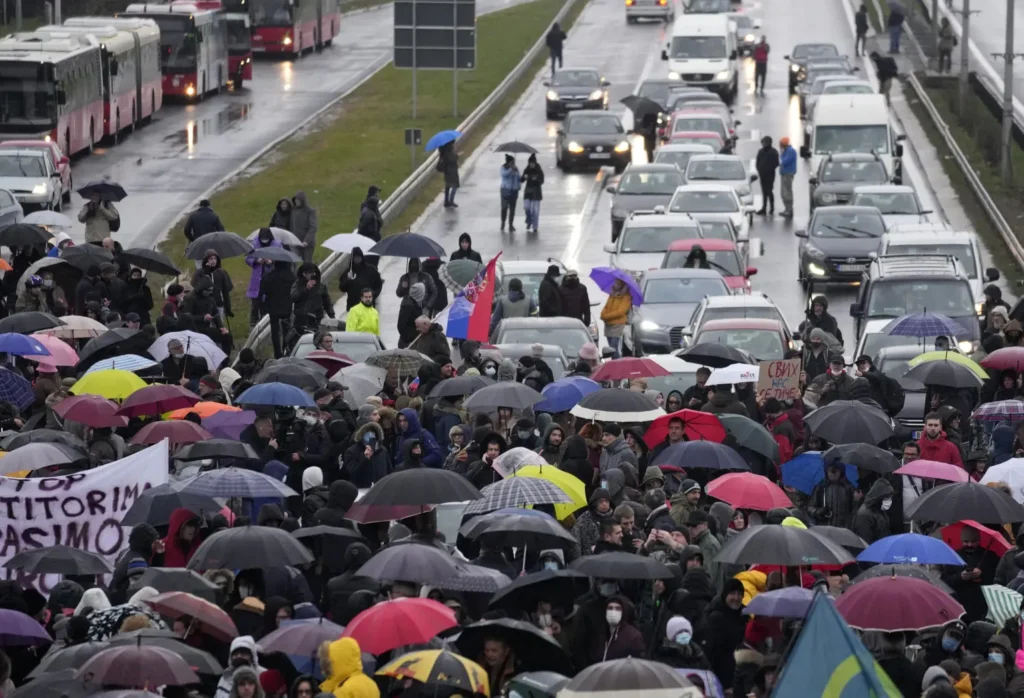
Serbia shaken by new protests against lithium exploitation
The Associated Press
In late July, thousands protested across several Serbian towns against a lithium excavation project recently signed with the EU. Protests occurred simultaneously in Sabac, Kraljevo, Arandjelovac, Ljig, and Barajevo, following demonstrations held in previous weeks in other parts of the country against the exploitation of lithium. The new deal on “critical raw materials” aims to reduce Europe’s reliance on China and align Serbia more closely with the EU. Despite this, environmentalists and opposition groups criticised the agreement, citing potential irreversible environmental damage and minimal benefits to Serbian citizens.
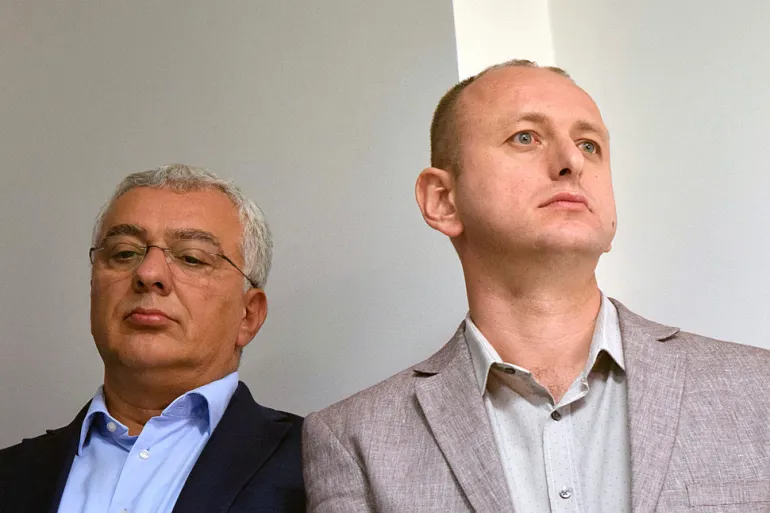
Holocaust resolution sparks crisis between Montenegro and Croatia
Politico
A controversial Montenegrin parliamentary resolution condemning Croatian crimes during World War II has jeopardised Montenegro’s EU accession prospects. Supported mainly by pro-Serbian politicians, the resolution highlights the crimes committed at the Jasenovac death camp operated by Croatia’s World War II Fascist regime. Croatia’s government labelled the resolution as “unacceptable” and “unnecessary,” alleging it undermines the UNGA resolution on the Srebrenica genocide and claiming it could hinder Montenegro’s EU membership bid. Croatia afterwards declared three pro-Serbian officials from Montenegro undesirable, banning them from entering the country. This decision followed the Montenegrin parliament’s passage of the resolution.
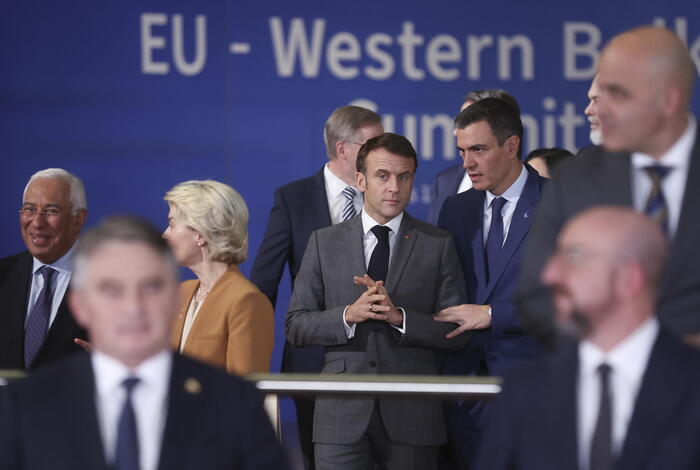
From the EU 1,2 billion financial package for infrastructures in the Balkans
See News
The European Commission announced a new financial package for the Western Balkans, aimed at mobilising 1,2 billion euros for infrastructure and entrepreneurship. This package will support eight major investments in water supply, sanitation, wastewater treatment, rail transport, and green innovation in SMEs. It includes 300 million in EU grants from the Instrument for Pre-accession Assistance, along with additional contributions from EU Member States, Norway and international financing institutions.
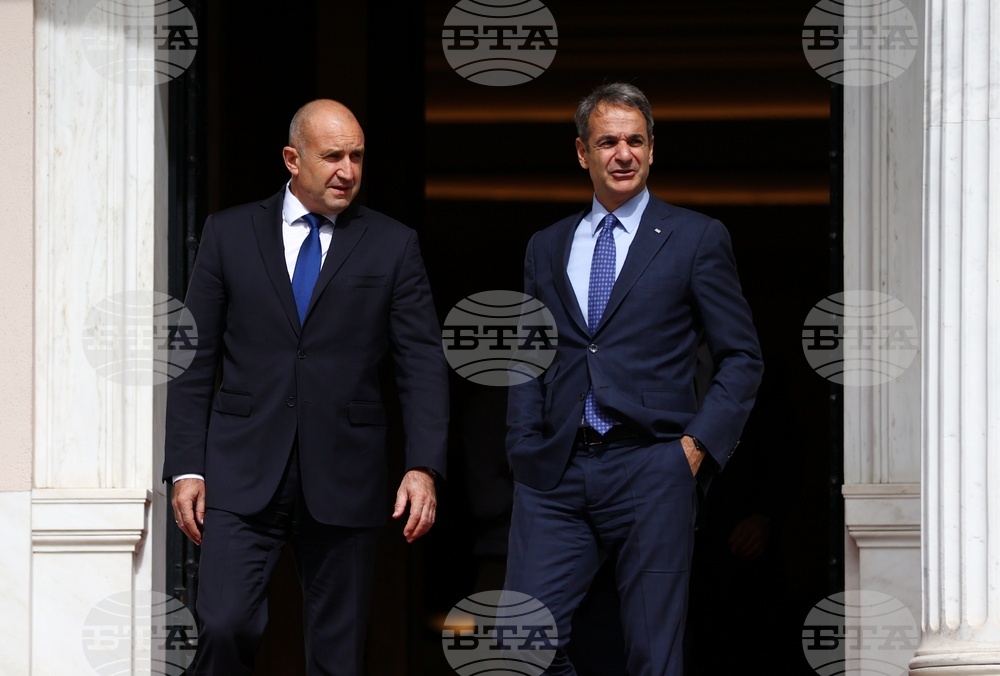
Key-LNG terminal to become operational in October
BTA
Bulgarian President Rumen Radev announced that the liquified natural gas (LNG) terminal in Alexandroupolis, Greece, a key-infrastructure for the energy security of the Balkans and Greece, is expected to be operational by October 2024. Radev made this statement after a meeting with Greek Prime Minister Kyriakos Mitsotakis, where they emphasised the need to accelerate strategic projects, including the LNG terminal. Some existing technical issues with the terminal are being resolved. Additionally, Bulgartransgaz, Bulgaria’s state-owned gas transmission operator, has secured a 20% stake in the terminal through an agreement with Gastrade, a subsidiary of the Greek energy company Copelouzos Group.
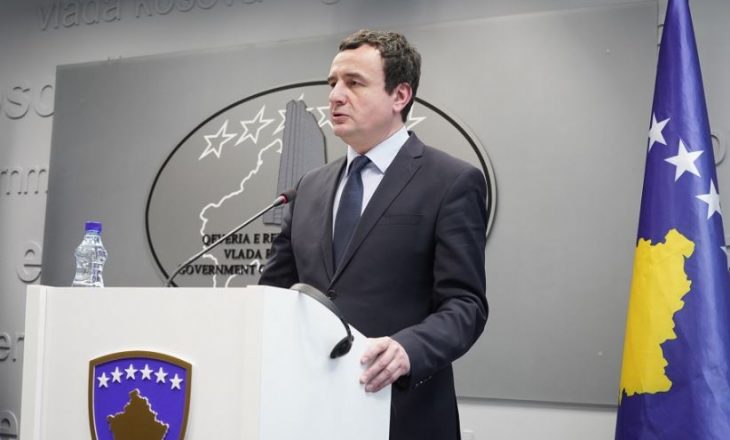
Kurti praises NATO for saving Kosovo’s people during Milosevic era
The New York Times
In a New York Times op-ed, Kosovo Prime Minister Albin Kurti emphasised NATO’s critical role in Kosovo and in saving the local population during the Milosevic regime, arguing that the alliance today is “more important than ever.” He criticised as well Serbian President Aleksandar Vucic for allegedly reviving “expansionist” policies reminiscent of Slobodan Milosevic and warned that Serbia and Russia might seek to exploit instability in the Balkans. Kurti expressed also concern that some in Washington may be underestimating NATO’s significance, noting that also European allies fear reduced American commitment after the upcoming presidential elections.
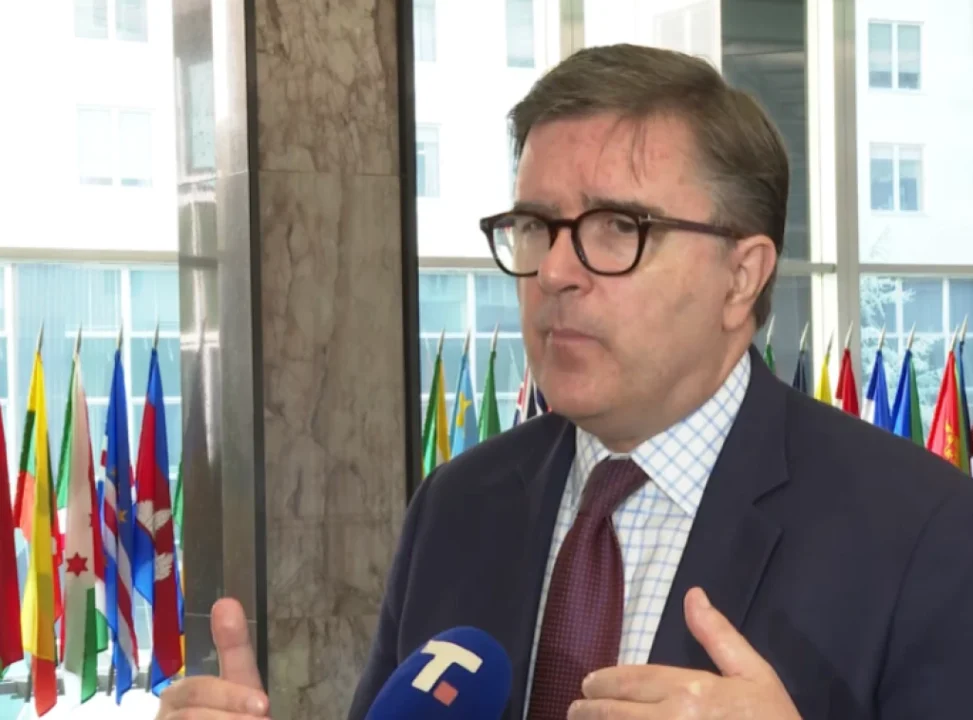
Bosnia and Kosovo main security risks says Washington
Tanjug
US Assistant Secretary of State for European and Eurasian Affairs, James O’Brien, told Tanjug that the main security risks in the Western Balkans lay currently in northern Kosovo and arise also from the threats of secession in Bosnia and Herzegovina. Nonetheless, he noted that over the past year, NATO had strengthened its role, in particularly regarding KFOR in northern Kosovo and EUFOR in Bosnia. O’Brien said he believes the enhancements would help prevent small local groups from inciting violence both in Kosovo and in Bosnia-Herzegovina.
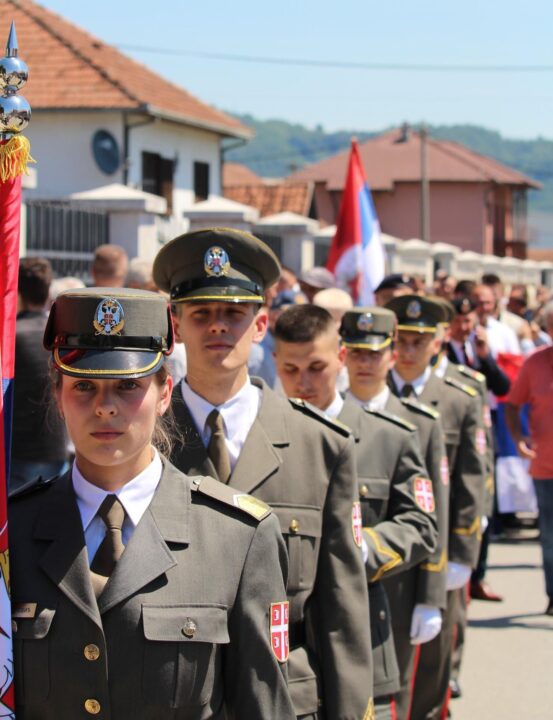
Parade of Serbian military causes outrage in Bosnia
N1
Some members of the Serbian army participated to parades in Bratuncac and Prijedor, in Bosnia and Herzegovina, to commemorate the crimes committed against Serbs in the Podrinje area, heightening tensions in the unstable Balkan region. The soldiers were observed at the annual commemoration of the Battle of Kozara, previously not attended by Serbian troops, which coincided with the anniversary of the Srebrenica genocide. The parades in Prijedor and Bratunac, sites of violence against Bosniaks during the 1992-95 war, were perceived as a threat by the Mothers of Srebrenica, who called on international institutions to address the situation and prevent further escalation.
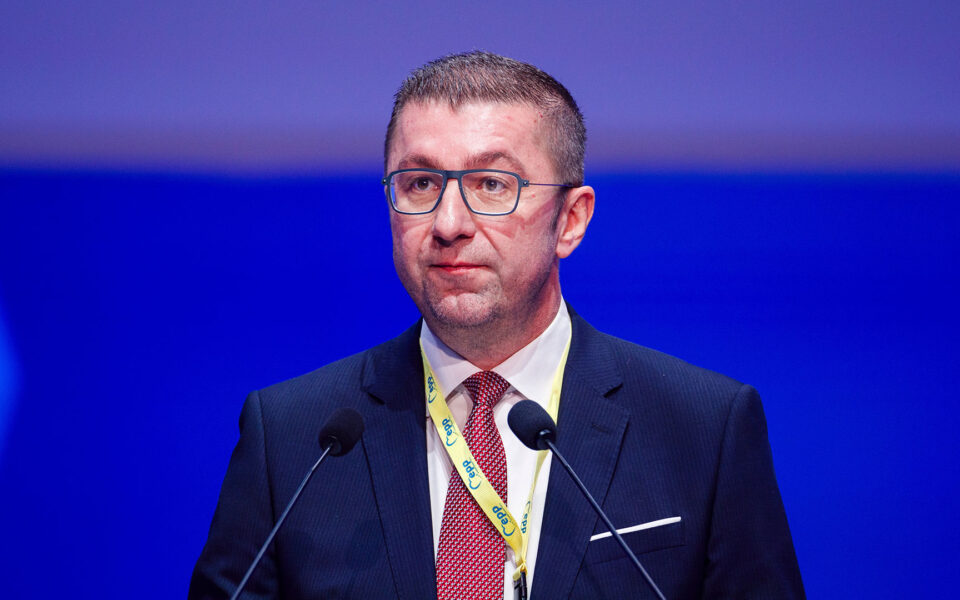
Mickoski calls again his country “Macedonia” at NATO summit
Kathimerini
During his first official trip abroad, North Macedonia Prime Minister Hristijan Mickoski referred to his country as “Macedonia” and his government as “Macedonian,” angering Greece. At the NATO summit in Washington, Mickoski stated, “Macedonia as a country, plans to continue promoting… peace, stability and international law. As the Macedonian government, we stand by our allies and affirm the libertarian spirit of the Macedonian people and the Macedonian citizens.” The wording used by Mickoski are considered by Greece a violation of the 2018 Prespa Agreement, which required the country to change its name to “North Macedonia” to resolve a dispute with Athens.
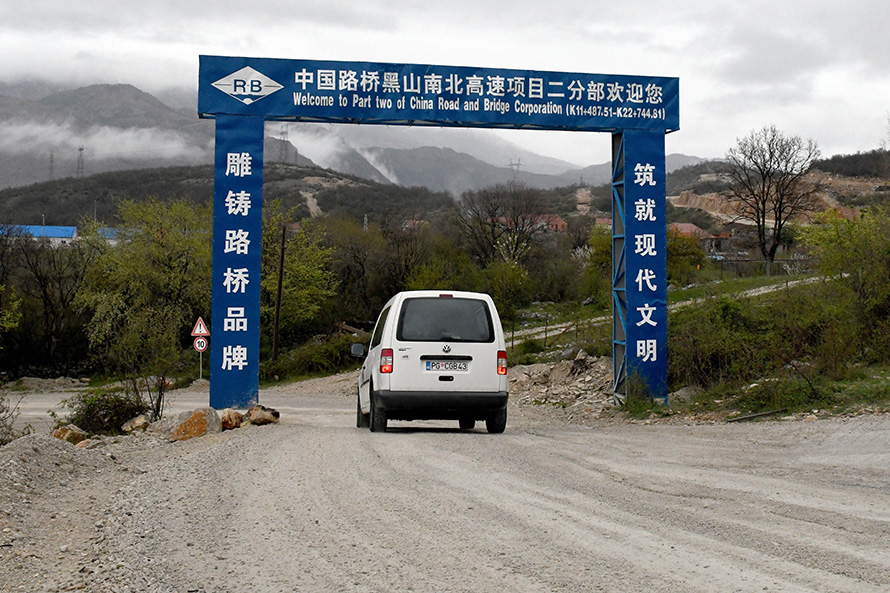
China continues to reinforce its presence in the Balkans
Le Monde Diplomatique
Le Monde Diplomatique warned of China’s growing influence in the Balkans, noting that over the past decade, more than half of China’s European investments have been directed to the region, particularly to Serbia. These investments primarily focus on energy, infrastructure, and mining, often with little consideration for environmental impacts. This influx of Chinese capital has frequently sparked protests from environmental and local groups in the region, Le Monde Diplomatique noted.

Alleged coup plotters in Montenegro acquitted
Radio Free Europe
Montenegro’s High Court acquitted 13 individuals (Montenegrin, Russian, and Serbian citizens), who were accused of plotting a coup on election day in Montenegro in 2016. This decision concluded a seven-year judicial saga. Prosecutors had claimed that that the group wanted to disrupt Montenegro’s NATO accession by attacking the parliament and assassinating the then-Prime Minister Milo Djukanovic. The Special Prosecutor’s Office plans to appeal. The defendants included the current Montenegrin parliament speaker, Andrija Mandic, and other senior members of the pro-Russian Democratic Front party. Two Russians were tried in absentia, alongside a retired Serbian police commander and seven Serbian nationals.

Evidence of Russian meddling in the Balkans confirmed
DFC
Despite the decision of the Montenegrin High Court, the Digital Forensic Center (DFC) claimed that there is enough evidence of Russian interference in Balkan politics, in particular in Montenegro, aimed at undermining NATO and the EU. Notably, the DFC investigated GRU agents’ involvement in the October 2016 parliamentary elections in Montenegro, where Russia sought to obstruct Montenegro’s NATO and EU accession. The DFC noted that Russia has consistently employed its intelligence agencies for foreign policy and hybrid operations, using subversive actions to achieve geopolitical goals. GRU’s hybrid activities in Europe, including Montenegro, reflect Moscow’s complex tactics and underline the persistent efforts to downplay Russia’s malign activities in the public sphere, DFC said.
The Insight Angle
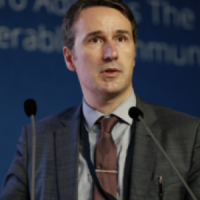
Adrian Shtuni
Adrian Shtuni is a Washington DC-based foreign policy and security specialist, CEO of Shtuni Consulting LLC, and Associate Fellow at the International Centre for Counter-Terrorism in The Hague. He is one of the most authoritative experts on violent extremism and terrorism in the Western Balkans, as well as consultant to international organisations and other institutions in the United States, Europe and Asia on preventing and countering terrorism and other transnational threats. You can follow him on X: @shtuni
Serbia was shocked by an unusual terrorist attack, when a Serbian citizen, converted to Islam, hit a police agent in front of the Israeli embassy and was subsequently killed. How serious was the attack?
The attack on the gendarme guarding the Israeli Embassy in Belgrade is very concerning for a number of reasons. Judging from the two video messages the attacker, Milos Zujovic, had recorded before the incident we can conclude that he acted with premeditation and clear intent to kill a policeman motivated by the violent ideology of the Islamic State, an extremely dangerous terrorist organisation.
The video statements also indicate that Zujovic not only thought of himself as a soldier of the Islamic State on a path to martyrdom, but was aware of the propagandistic value of the hateful and threatening antisemitic messages he was making and disseminating as a means of supporting the cause of the Islamic State, while driving others to carry out similar acts of violence.
Lastly, the fact that the attack was carried out on the 10th anniversary of the proclamation of the caliphate by Abu Bakr al-Baghdadi on 29 June 2014 further attests about the high level of Zujovic’s radicalisation and commitment to the organisations’ cause.
Can we speak about the action of a lone wolf or is there something else behind?
While Zujovic appears to have carried out the attack alone and had no formal organisational ties to the Islamic State, it is unclear at this point if he coordinated with any likeminded individuals or received any support from them. The investigations will reveal if the other individuals arrested in the aftermath of the incident had any knowledge of Zujovic’s plans or any role in the planning or execution of the attack.
The attacker at the Israeli embassy was most probably acting as an act of revenge for the Israeli actions in Gaza, his wife suggested. Do you think there is any risk in the Balkans and in Europe of similar actions?
His wife’s suggestion is corroborated by the statements Zujovic recorded before the attack. The Israeli Embassy appears to have been targeted in retaliation of the war in Gaza. Unfortunately, since the October 7’s attacks on Israel and the outbreak of the Gaza war, religious hate speech and antisemitic rhetoric online across the Western Balkans has increased significantly. This is particularly troubling trend.
Unquestionably, what’s happening in Gaza and the hateful propaganda being circulated online combined with domestic radicalising dynamics are galvanising radicalisation and exacerbating the risk of radicalised individuals engaging in terrorist activities across the Western Balkans. This is a concern I have raised earlier this year.
In my assessment, as long as these circumstances persist, the risk that terrorist organisations like the Islamic State will succeed in radicalising and recruiting new militants and inspiring similar terrorist attacks in the Balkans and beyond will remain high.
The attack in Belgrade was also most probably connected to the Wahhabi movement, until now present only in Bosnia and perhaps in Kosovo. Who are the Wahhabis and what kind of security risks they pose in the region? And are you surprised of their presence in Serbia?
The Wahhabi movement or Wahhabism is an ultra-conservative branch of Sunni Islam and a common umbrella term used in the Balkans, sometimes inaccurately, to describe a much more diverse constellation of militant Islamist ideologies and entities present in the region for decades. Other terms include Salafism, Takfirism, Qutbism, etc. Without getting into a long ideological discourse, it might be more accurate to refer to these entities as Salafi-Jihadist groups.
These puritanical groups espouse a religious-political ideology that regards armed struggle in the form of jihad as the ultimate means of imposing their worldview and establishing a global caliphate. Their presence in the Western Balkans, including in Serbia, intensified during and in the aftermath of the conflicts of the 1990s but it was not limited to Bosnia and Kosovo. The most accurate map of these Salafi-Jihadist groups’ presence is not accidentally identical to the map of locations where Western Balkans foreign fighters in Syria and Iraq originate from. Judging from the high number of people these groups have managed to radicalise, recruit and mobilise to their cause in the Western Balkans, which is not limited to the foreign fighters, I would say the security risk they pose is considerable and constant.
Last year Europol warned of a security risk connected to the foreign fighters form the Balkans who came back home in the previous years. How serious is the threat?
Returning foreign fighters, especially those previously affiliated with terrorist organisations like the Islamic State, pose a significant security challenge to the Western Balkans. This is not only due to the larger numbers and higher concentration of these returnees in the region than elsewhere in Europe, but also because of the lower prison sentences they have received compared to EU countries and the limited resources, expertise and personnel available in the region to adequately deal with this contingent.
To be clear, I have long argued that proactive and controlled repatriation of citizens from overcrowded Syrian camps and prisons is the right approach in the long term. It allows for a more effective management of security risks. Yet, repatriation is only one step of a long, demanding, and costly process for the adequate management of the security risks they pose. To that end, sentencing ranges and conditional release practices should be revised. Also, more should be done to build prison-based programs and post-incarceration monitoring and risk assessment mechanisms across the region, since by early 2025 most if not all repatriated foreign fighters are set to be released.
Finally, do you think the Balkan region is acting properly and has the means to counteract possible terrorist threats?
Over the years the countries of the region have made significant progress in the counterterrorism front. They have made necessary changes to their legislative frameworks to criminalise engagement in all forms of terrorist activities, including participating in foreign conflicts as well as financing of terrorism. They have also developed focused counterterrorism capacities with support from the USA and EU partners.
Nevertheless, challenges remain. One of them relates to the means, especially because effective counterterrorism is both labour and resource intensive and requires personnel with advanced skills. In an environment with heightened security threats due to all the factors I touched on above, modestly resourced countries are bound to struggle. They would benefit from increased support from their partners.
Ultimately terrorism is a transnational threat that transcends borders. Better cross-border information sharing, coordination and cooperation would go a long way to mitigating these common risks.
The Key Story
Strategic trends
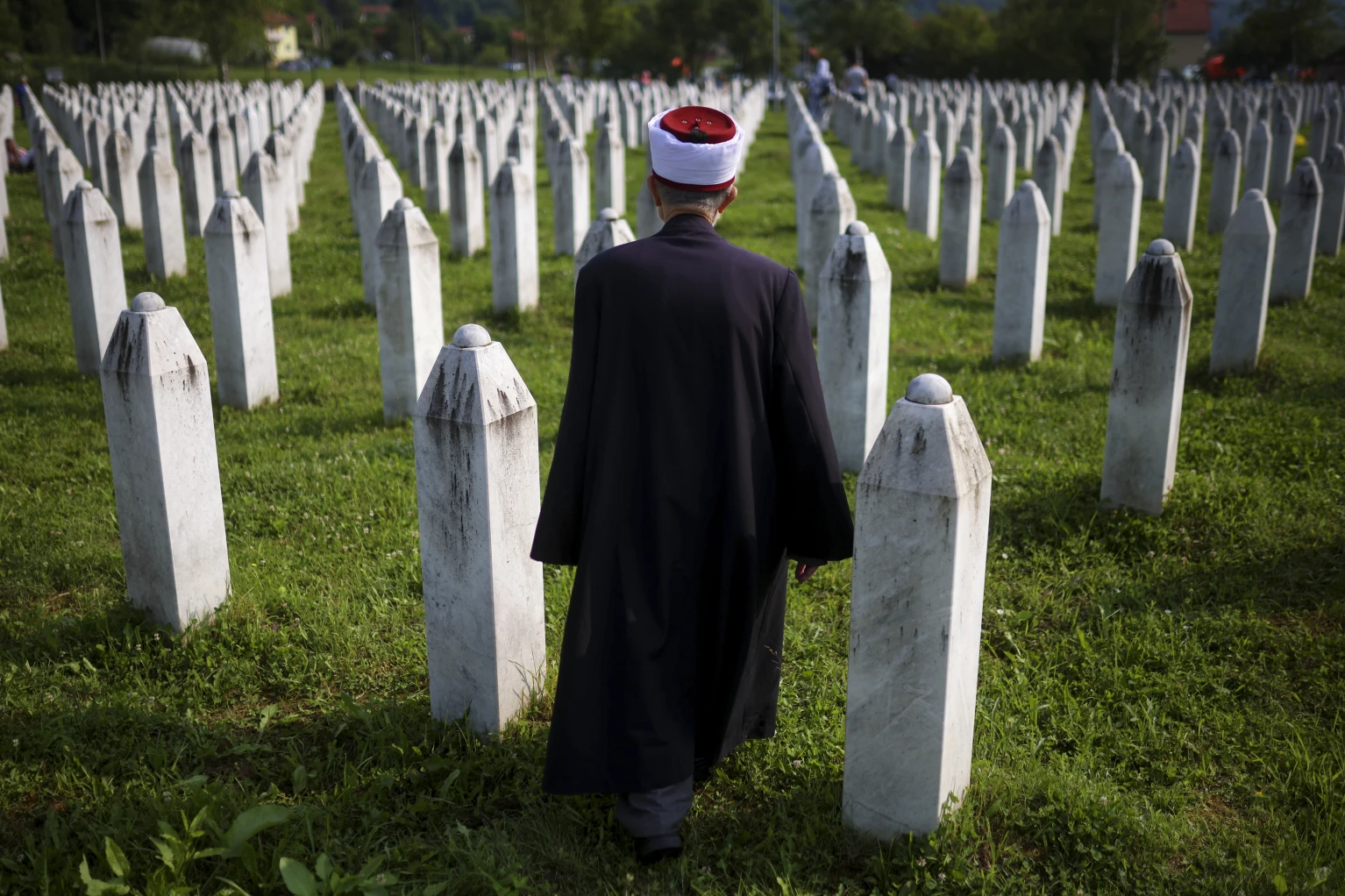
Srebrenica’s genocide commemorations ignite once again tensions in the Balkans
On the 11th of July thousands gathered near the Bosnian town of Srebrenica to remember the genocide of Bosnian Muslims in 1995, the worst massacre on European soil since 1945.
Families of the victims were in tears, with some of them finally burying their loved ones whose remains were only recently discovered, 29 years after. The youngest of the 14 victims reburied this year was a 17-year-old boy, the eldest was 68. Their remains, originally exhumed from mass graves, were laid to rest following a ceremony at a memorial cemetery outside Srebrenica, the Memorial in Potocari.
However, the commemorations once again ignited political tensions in the Balkans, particularly among Bosnian Serbs and in Serbia. This year’s event was especially problematic as it coincided for the first time with the International Day of Reflection and Commemoration of the 1995 Genocide in Srebrenica, launched by the UN General Assembly despite strong opposition from Serbia, Russia, China, and other countries.
The ceremonies in Srebrenica are held to commemorate the events of the 11th of July 1995, when Bosnian Serb forces captured the eastern Bosnian town of Srebrenica, which was then a UN-protected enclave, at least on paper. In the following days, Bosnian Serbs commanded by General Ratko Mladic killed 8.000 Muslim men and boys in what became the worst massacre in Europe since World War II. Two international courts have ruled it as genocide, but Serbs still recognise it only as a mayor war crime.
A UN court sentenced Bosnian Serb wartime political leader Radovan Karadzic and his army chief Mladic to life in prison for war crimes, including the Srebrenica genocide. Bosnia’s 1992-1995 war between its Croats, Muslims, and Serbs claimed approximately 100.000 lives.
Nearly three decades after the war ended, the Balkan nation remains deeply divided along ethnic lines, and the Srebrenica commemoration every year sparks new controversies. Most divisive was as usual the behaviour of Milorad Dodik, the President of Bosnia’s Respublika Srpska (RS) entity, who insulted Bosniaks ahead of the Srebrenica anniversary by saying they “genetically hate Serbs.” Furthermore, he falsely claimed that the new NATO Secretary General, Mark Rutte, had said that Srebrenica was “the biggest fraud in history.” Dodik once again denied that a genocide took place in Srebrenic saying it was “a huge lie.” However, on the 11th of July, Dodik used a different tone by stating that “today, Bosniaks remember their victims and they are paying their respect,” and called on everyone to “mark this day in peace and dignity.”
Controversial claims were also made by Serbian Prime Minister Milos Vucevic, who, ahead of the official commemoration at the Memorial in Potocari, preferred to focus on war crimes against Serbs in eastern Bosnia. He claimed these crimes were a continuation of genocidal policies against Serbs. “They wanted to punish us because we settled on both banks of the Drina River, which they consider the border between the eastern and western hemispheres. That’s why they slaughtered, killed, and displaced us in both World Wars and the recent conflict,” Vucevic was quoted as saying.
Furthermore, media in Belgrade vehemently attacked Munira Subasic, the historical leader of the Mothers of Srebrenica association, for allegedly threatening Serbian President Aleksandar Vucic’s sons. Subasic was reported to have said that Vucic, who did not support the UN General Assembly Resolution, had not paid consideration to the victims. “The dead cannot come back, but he still has his children. He must be thinking about it. Not only is his life important – his children’s and grandchildren’s lives are important. He should have asked for forgiveness from us mothers in some way,” Subasic said. Afterwards, she was strongly criticised by former Serbian PM Ana Brnabic, who said Subasic’s words were a “monstrous” attack against Vucic. The Mothers of Srebrenica responded, stating that Subasic never wished death neither upon Mislav Galic’s son, who led her own son to his death, let alone upon Vucic’s children.
Meanwhile, the Kosovo Government has adopted a proposal to declare July 11 as “Srebrenica Genocide Remembrance Day,” with Prime Minister Albin Kurti claiming that this declaration is a noble and appropriate action for Kosovo.
The European Union, which Bosnia and Herzegovina and Serbia aspires to join, called the atrocity “one of the darkest moments in modern European history.” “There is no place amongst us for those who deny genocide, attempt to rewrite history, and glorify war criminals,” EU foreign policy chief Josep Borrell and the bloc’s enlargement commissioner Oliver Varhelyi said in a joint statement.
On the 29th anniversary of the Srebrenica genocide, Council of Europe Secretary General Marija Pejcinovic Buric described it as one of the darkest chapters in European history. She honoured the thousands of innocent men and boys murdered only due to their ethnicity and religion and acknowledged the ongoing suffering of their families.
Pejcinovic Buric emphasised the need to learn from this tragedy, reject denial and revisionism, and commit to equality, diversity, and mutual respect to prevent such atrocities from recurring. However, the memory and history remain deeply divisive in the Balkans, as confirmed by the last Srebrenica anniversary, and could pave the way for future crimes and atrocities if authorities do not seriously address past responsibilities.
Further News and Views
Attempted terrorist attack in Belgrade shocks Serbia
Sources: Times of Israel, Al Jazeera, Euronews
On the 30th of June, Belgrade was rocked by an unusual terrorist attack, a rare occurrence in Serbia and the Balkans. The incident involved an assailant armed with a crossbow who injured a police officer stationed at the Israeli embassy. The attacker was shot and killed by the agent before entering the premises of the embassy.
According to Interior Minister Ivica Dacic, the officer was in a guardhouse when the assailant repeatedly inquired about the location of a museum. At one point, the attacker drew a crossbow from his bag and shot the officer in the neck, seriously wounding him. The officer responded by firing several shots at the assailant, who succumbed to his injuries. The authorities in Belgrade described the event as a “terrorist attack against Serbia” and Israel.
Additional information was released at the beginning of July, adding some details to the case. The assailant, identified by police as a “convert” to Islam, was a Serbian citizen from Mladenovac, near Belgrade, and had been residing in Novi Pazar, a significant centre for Serbia’s Bosniak Muslim minority.
The attacker, 25-year-old Milos Zujovic, had converted from Eastern Orthodoxy to Islam and adopted the name Salahudin. Authorities noted links between the attack and individuals associated with the ultra-conservative Wahhabis branch of Islam, prevalent in Saudi Arabia. Zujovic was a follower of the Wahhabi movement, experts and police confirmed. Several individuals known to security services are suspected of connections to both the attack and the Wahhabi radical movement, the Serbian government informed, after at least two other suspected persons were arrested. Balkan citizens connected to the Wahhabi movement have been implicated in at least two terrorist attacks in Bosnia-Herzegovina more than ten years ago (Sarajevo, attack against the US embassy in 2011; Zvornik, 2015).
Free trade agreement between Serbia and China enters into force
Sources: Chinese State Council, China Briefing, International Trade Administration, BNE Intellinews
In July, the already strong relationship between Serbia and China was further solidified with the implementation of a historic free trade agreement between Belgrade and Beijing. This agreement effectively opens the door for Serbian products to enter the Chinese market and for Chinese goods to access the Balkan country without any custom duty.
Under this deal, signed at the end of 2023, approximately 90 percent of the products traded between China and Serbia are exempt from tariffs, with over 60 percent benefiting from zero tariffs immediately upon implementation.
Starting this month, Serbia’s exports of fresh apples, blueberries, dried plums, jams, seeds, and beef to China will be tariff-free. Other products, such as frozen raspberries, additional meats, and dairy items, will achieve tariff-free status within 10 years. The free trade agreement aims for a complete liberalisation within 15 years. In 2023, China was Serbia’s second most valuable foreign trade partner. Exports to China surpassed 1.1 billion euros, mostly copper ores extracted in Serbian mines controlled by China.
In recent years, China and Serbia have greatly strengthened their relationship, enhancing both economic and political ties. This close partnership, often described as an “iron friendship,” has made China a key ally for Serbia, which maintains its strategic goal to enter the EU.
EU - NATO
Western Balkans’ economies lagging behind the EU
Sources: BNE Intellinews, Erste
A new report from Erste indicates that neither the EU nor the Western Balkans are currently prepared for accession. Comparing the 2004 accession of Central European countries with the status of former Yugoslav states, the report highlights significant disparities. The five Central European nations that joined the EU in 2004 have for instance become notably wealthier, with GDP per capita rising by 40% in Poland, 19.4% in Slovakia, and 19.0% in Czechia.
In contrast, the Western Balkans – Bosnia and Herzegovina, Montenegro, North Macedonia, and Serbia – are lagging economically. The report estimates that if these countries had joined the EU in 2004, their GDP per capita could have increased by up to 107% in Bosnia and 53% in Montenegro.
The report also underscores that the EU’s reluctance to enlarge and the Western Balkans’ hesitance to implement reforms are key factors in the current deadlock. The report suggests that a lack of EU commitment and overshadowing geopolitical issues have kept the Western Balkans low on the EU’s priority list, exacerbating the economic stagnation.
ECONOMICS
Balkans need 37 billion to cope with climate change impact
Sources: World Bank, Balkan Insight
The Western Balkans need to invest at least 37 billion dollars over the next decade to safeguard their economies and societies against climate change, according to the World Bank Group’s Western Balkans regional Country Climate and Development Report (CCDR).
This collective effort by Albania, Bosnia and Herzegovina, Kosovo, Montenegro, North Macedonia, and Serbia would be crucial to prevent loss of life, property, and productivity, and to boost economic growth, the World Bank noted.
The region, already heavily impacted by climate change, faces worsening floods, increasing wildfires, and severe droughts affecting agriculture. Heatwaves also contribute to air pollution and premature deaths.
To remain competitive and secure energy, the region must reduce greenhouse gas emissions and invest an additional 32 billion to achieve climate neutrality by 2050, aligning with EU goals, the World Bank underlined.

Stefano Giantin
Journalist based in the Balkans since 2005, he covers Central- and Eastern Europe for a wide range of media outlets, including the Italian national news agency ANSA, and the dailies La Stampa and Il Piccolo.

